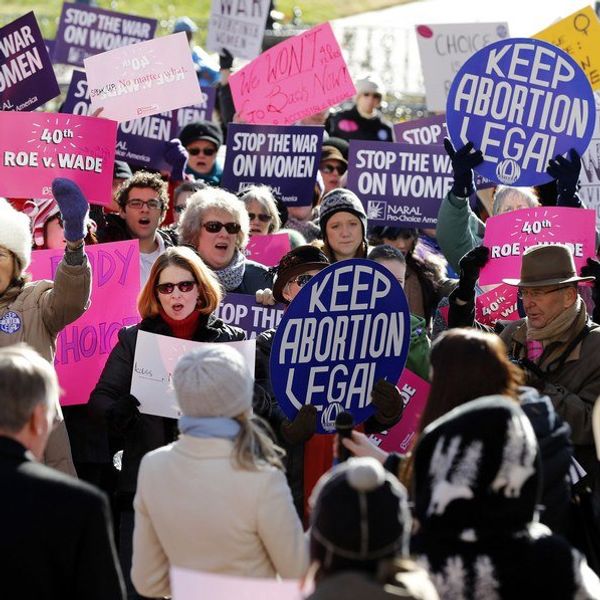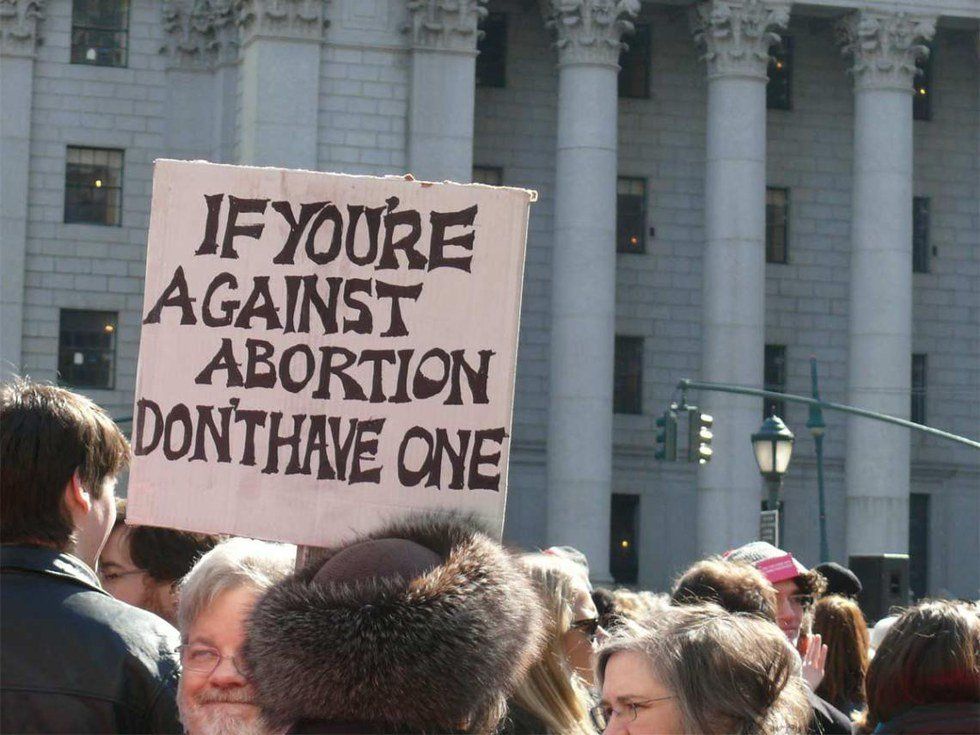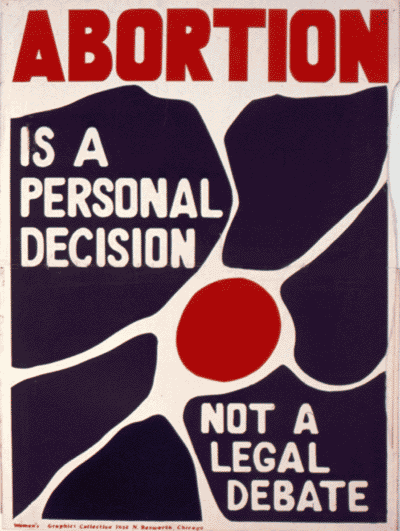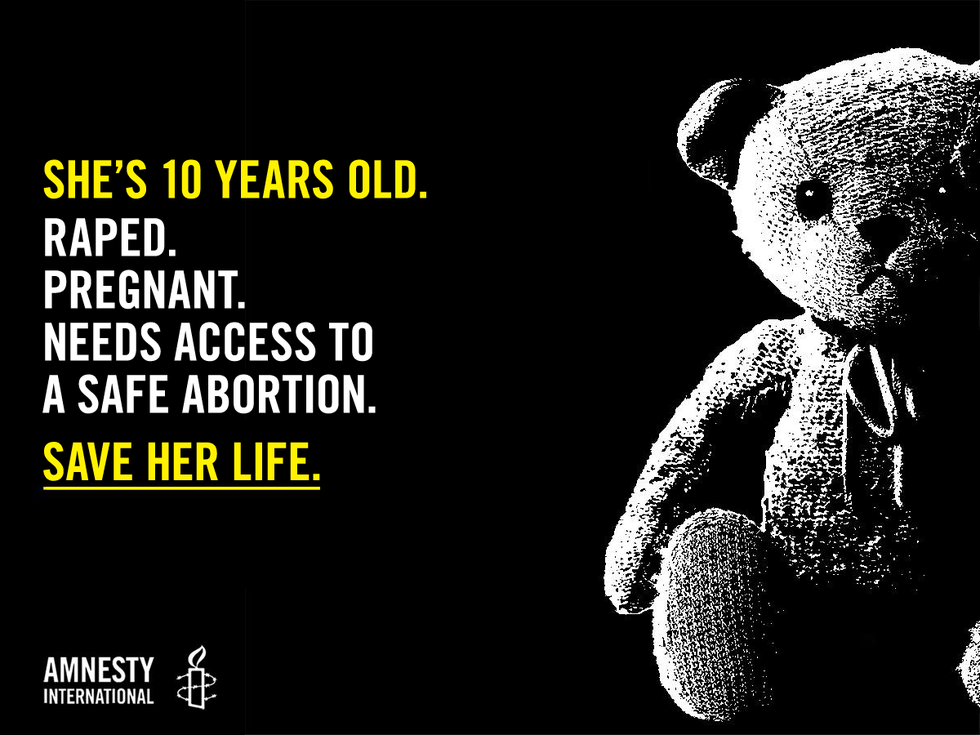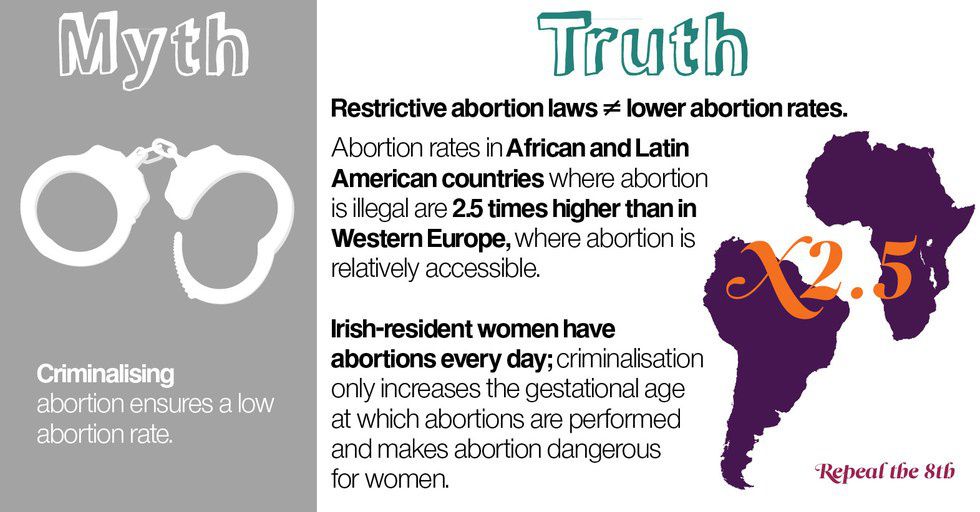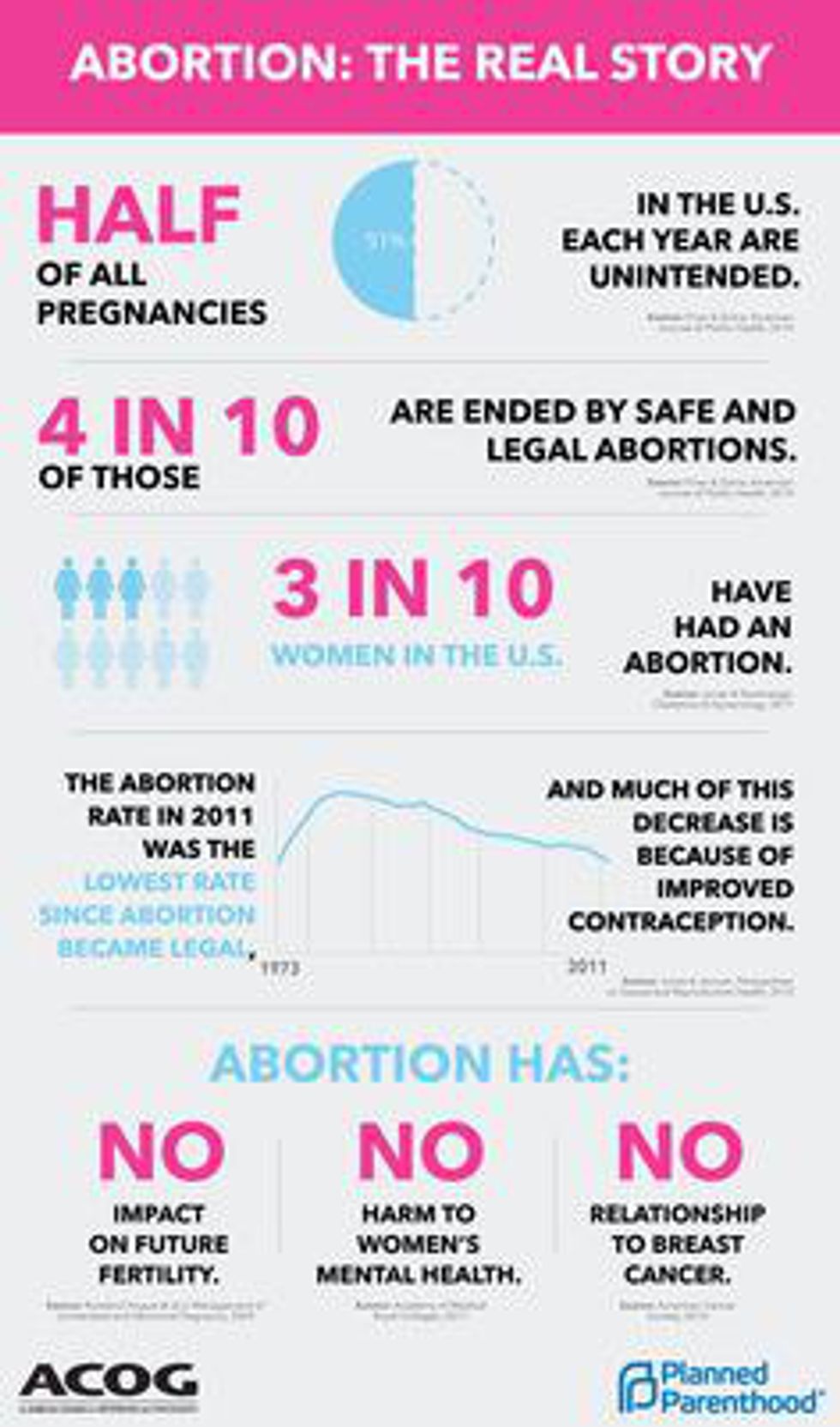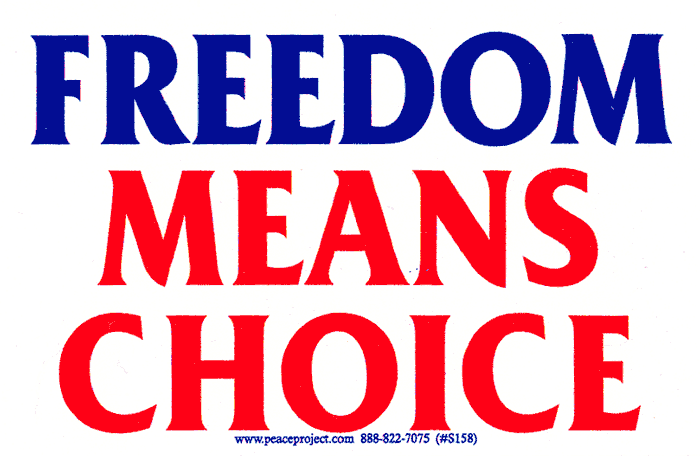Abortion is a hot button issue in our country right now, especially with this year being an election year. Merriam Webster defines abortion as the termination of a pregnancy after, accompanied by, resulting in, or closely followed by the death of the embryo or fetus. This can be due to a natural cause (miscarriage) or by inducing medically. The issue of abortion is a huge debate because it is the clashing of rights...both for the unborn and for the mother.
According to the CDC, in 2013, there were 664,435 legal induced abortions. The rate was 12.5 for every 1,000 women aged 15-44 years. The ratio was 200 abortions for every 1,000 live births. Women in their twenties accounted for much of it. The majority of abortions in 2013 took place early in gestation: 91.6% of abortions were performed at ≤13 weeks’ gestation; a smaller number of abortions (7.1%) were performed at 14–20 weeks’ gestation, and even fewer (1.3%) were performed at ≥21 weeks’ gestation. In 2013, 22.2% of all abortions were early medical abortions. The Shriver Report also stated that approximately 50 percent of all pregnancies in the United States are unplanned, and of these, 43 percent will end in abortion. About 90% of sexually active women use some form of birth control. The remaining 10% account for half of these unplanned pregnancies, but the other half occur in women using birth control. The CDC defines unplanned pregnancy as a pregnancy that is reported to have been either unwanted (that is, the pregnancy occurred when no children, or no more children, were desired) or mistimed (the pregnancy occurred earlier than desired). To say that women get abortions right before their due date is highly inaccurate.
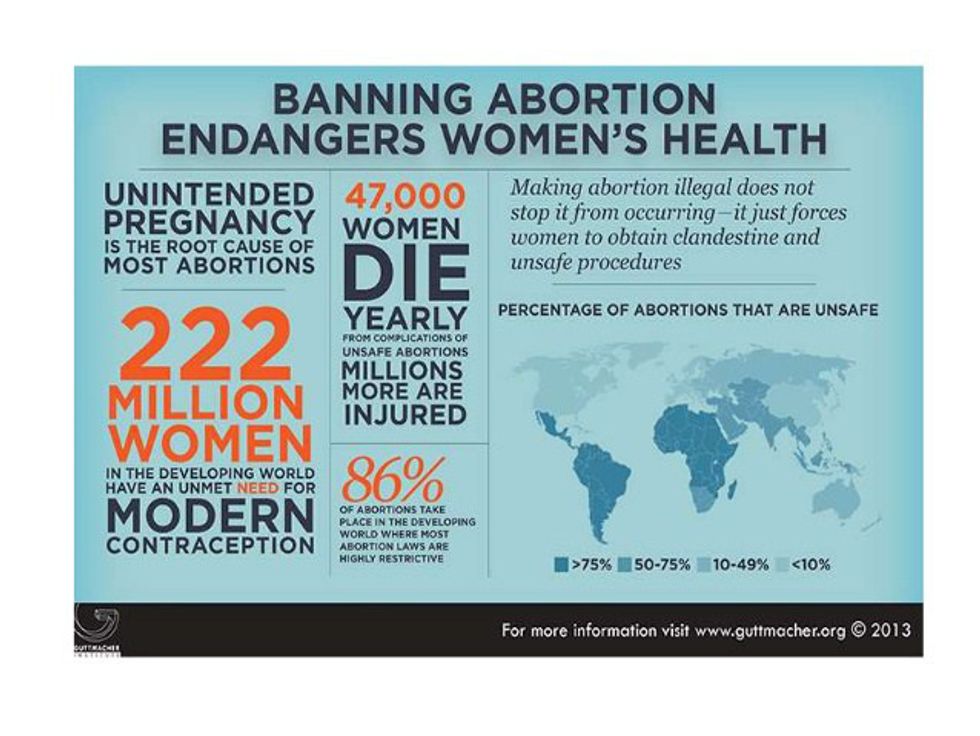
Not everyone will agree with these reasons, and that's okay. What's not okay is to ostracize someone for making this decision, because it isn't an easy one. Julie Bindeman's abortion story on NARAL Pro Choice America's webpage tells the reader about the pain she and her husband went through when trying to add more children to their family. After the birth of her first son, she was pregnant three times before successfully having another baby. The first one ended in a miscarriage, but the other two ended in termination via early labor induction due to extreme fetal anomalies that threatened the lives of these two fetuses. These anomalies (enlarged brain ventricles and poor neural connections with a combination of other issues) would have lead to death, and a non viable life outside of the womb. There was discussion of numerous brain surgeries that would have to start after birth, along with special chairs and equipment as her son grew. She described the decisions as agonizing, especially with having to terminate two wanted pregnancies. There was no chance of a miracle outcome for either one. Continuing a risky pregnancy in this situation would lead to a lot of pain for the child and parents, along with special medical costs that might not be covered by insurance.
There are several other stories that describe the pain in making the decision due to financial problems, abuse, medical problems, young age, and other reasons that were listed earlier. Calling these women murderers is wrong and disgusting. It's also wrong to harass them outside of a clinic while protesting. It's fine, and a right, to protest an issue, but it's supposed to be peaceful. Harassing someone isn't peaceful, but it's upsetting to the woman and it won't prevent her from having the abortion. A study in the journal Contraception even states this, along with how it doesn't seem to effect a woman's emotions a week after the abortion. Attempting to push the pro life agenda in this manner is completely wrong, and it isn't accomplishing anything. Banning it won't help it either because it will lead to more problems. Look at Romania, for example. Manuela Latainu's essay discusses Decree 770, which was put into effect in 1966 by Nicolae Ceaușescu, and lasted for 23 years. It banned contraceptive use, along with abortion. The decree stated that every woman under 45 had the patriotic duty to give the homeland at least five children. All women had to go to a gynecologist every month for an exam in order to receive healthcare. Any detected pregnancies were monitored to term, almost annihilating any chance for abortion. Those who broke this law faced prison time. Even the sale of contraceptives was punished. People over 25 who didn't have health or fertility issues were punished for being celibate, and had to pay 30% tax on income. The law did, however, provide exceptions for getting abortion in the case of rape, incest, or any medical issues threatening mother, baby, or both. The sex education was also non existent. This law led to people seeking contraceptives and getting abortions illegally. The primitive conditions in which these illegal abortions were performed led to massive bleeding, infections, infertility, and even death for the woman. This was the case for the poor women. The rich women were able to buy contraceptives illegally on the black market, or pay a very high price for a doctor to obtain the right for abortion in a specialized clinic. Information on abortion was available, but in secret. This ban led to the highest maternal mortality rate in Europe. Between 1982 and 1988, 3,360 women died, leaving 6,880 orphaned children. It also led to increased infant mortality rate, 340,000 babies dying out of the 10 million born between 1967 and 1989. 20% of the children were born underweight and had cognitive malfunctions, negatively affecting Romania's gene pool. Other effects included overpopulation and not enough resources.
It is clear that banning things doesn't work. The 18th Amendment to ban alcoholic beverages didn't work because people still obtained alcohol. People who think banning guns would work will just lead to citizens obtaining them illegally. It will be the same with abortions, but with more dire consequences. It's fine to disagree with having an abortion. It's fine if you don't want one yourself. However, it's not fine to push it off on others, or to tell the woman that "adoption is a better option." Try telling that to the over 400,000 kids who are in foster care, stated by this 2015 report from the Children's Bureau. 28% of those kids are abused while in the system, as stated by Psychology Today. That doesn't help the argument of adoption being a better choice.
How can we lower the abortion rate? NARAL Pro Choice America states that better birth control access and better sex education is the key. It stated that pharmacies can deny to fill a birth control prescription, or that insurance companies don't cover it, both preventing access to contraceptives. Not only that, but abstinence only sex education puts teens in danger. We already know that telling someone not to do something will make them want to do it. Instead, teens need to know about STDs and unwanted pregnancies. Taking these steps will help reduce abortion and promote better reproductive health. Pro choice isn't pro abortion, it is acknowledging that the option is available. Next time someone downs your pro choice beliefs, show them this article. Maybe it will enlighten them.


